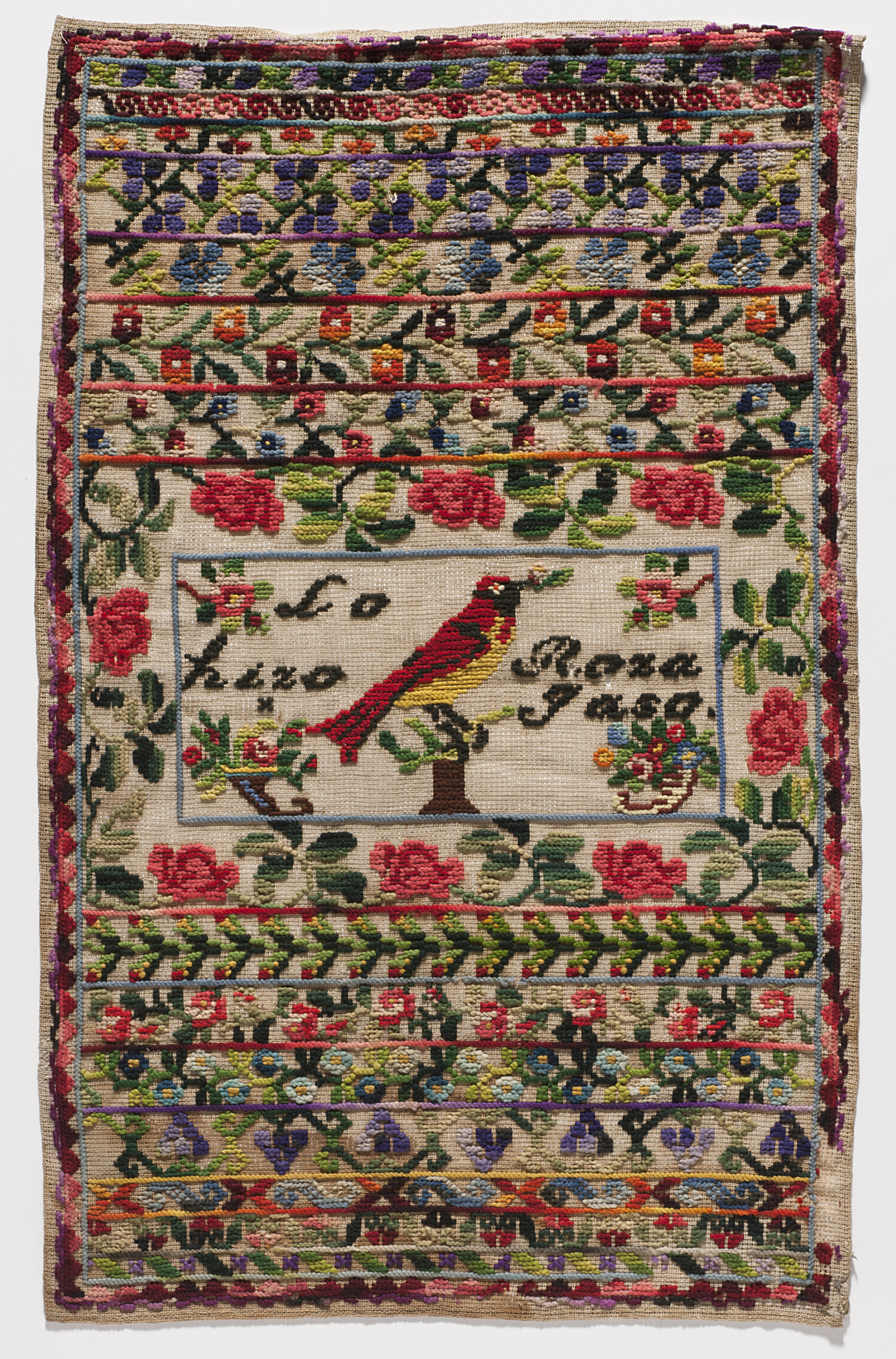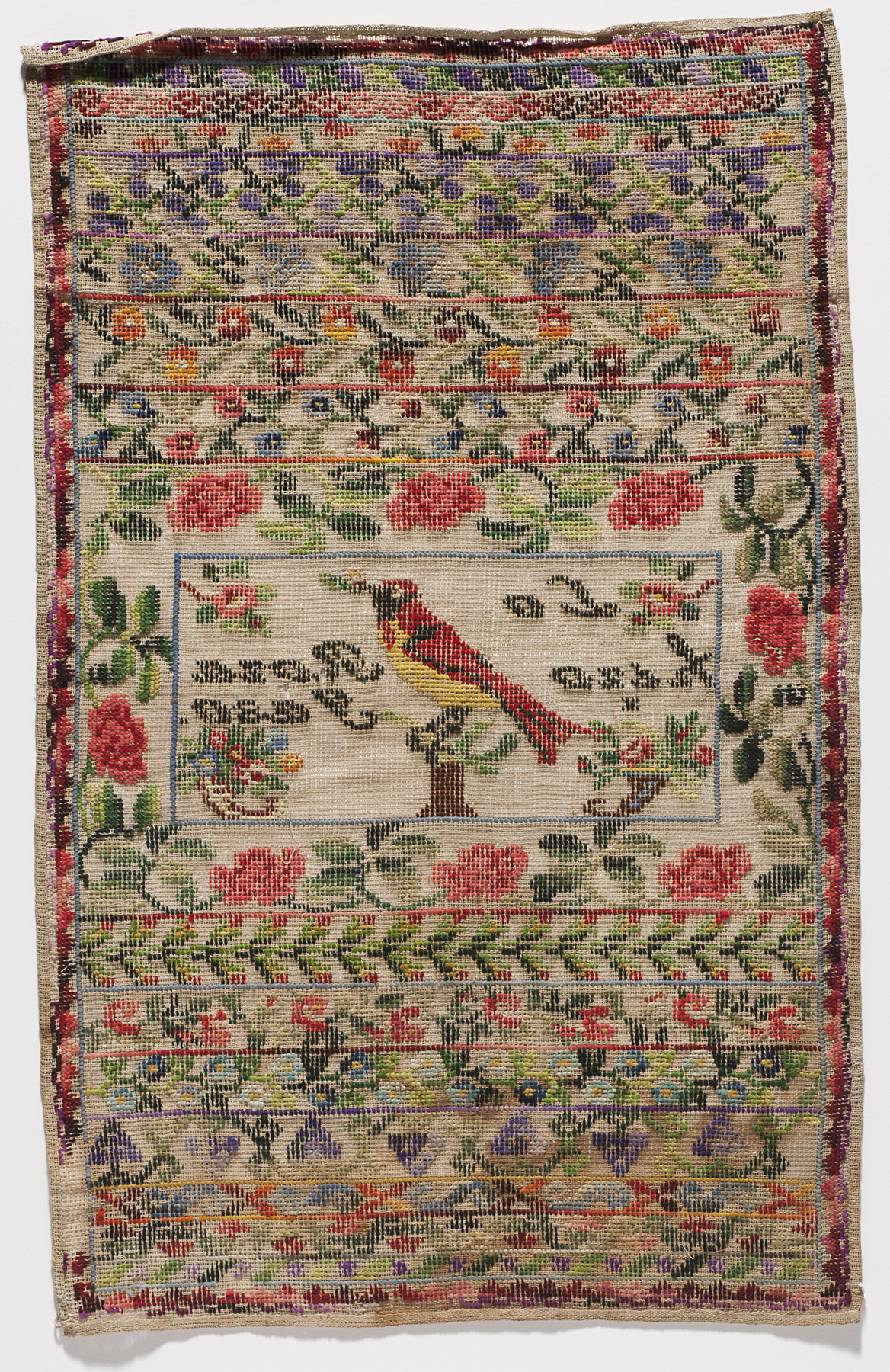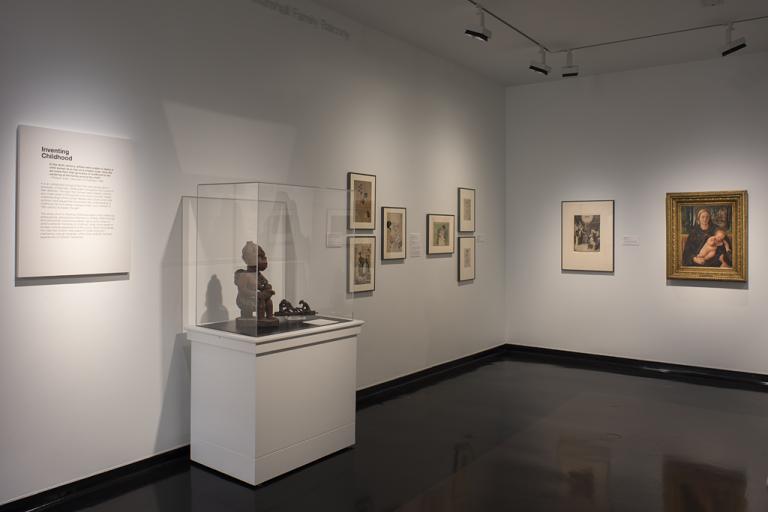untitled sampler, Roza Jaso
Artwork Overview
Roza Jaso, artist
untitled sampler,
1820–1860
Where object was made: Haiti
Material/technique: canvas mesh; embroidering; cross-stitching; wool thread
Dimensions:
Object Height/Width (Height x Width): 60.96 x 39.37 cm
Object Height/Width (Height x Width): 24 x 15 1/2 in
Object Height/Width (Height x Width): 60.96 x 39.37 cm
Object Height/Width (Height x Width): 24 x 15 1/2 in
Credit line: William Bridges Thayer Memorial
Accession number: 1928.6827
Not on display
If you wish to reproduce this image, please submit an image request




